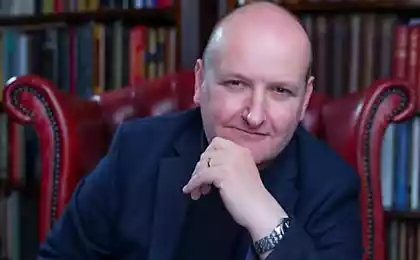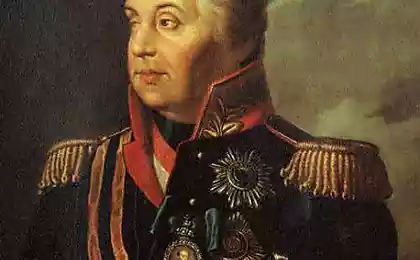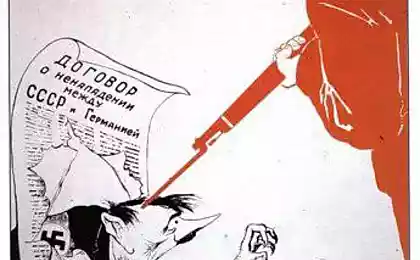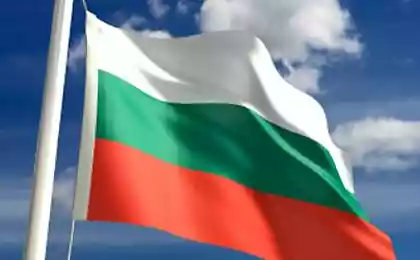952
The information war against the middle Ages: why we still know nothing about him

© Lorenzo Costa
Employee history and Philology, Russian state University for Humanities and a specialist in the history of English literature of the middle Ages and modern times Mary Aliferova actively raising money for the Russia's first electronic scientific journal in medieval studies beyond disciplinary boundaries.
— What do you do in medieval studies?
Maria Alferova, philologist, PhD.N., IFI RSUH: "the Main my specialty is the history of English literature, but I say, unable to stay away from other topics: a student was distracted by the Shakespeare studies, then the study of the Shakespearean influences in the literature of Pushkin's era. The anglistics in the USSR was set up very well, but very selectively: it consisted mainly of Shakespeare, Byron and Dickens. For those who simpler, was Agatha Christie. Other English authors almost was not in the Soviet consciousness. Reading Geoffrey Chaucer was already elite, he in this sense was lucky — his "hyped" translator Ivan Kashkin. I recently wrote a book review of Andrei Azov "Defeated butality" where once regarded as the fight of the Soviet translators for publishing orders: selection, who translate and publish, in fact, was determined not only by the policy, top-down, but a power struggle of interpreters for the orders was pretty rude to competitors, justifying their orders progressive, and, accordingly, all other calling reactionary. Everyone, of course, had his own ideas about it. So Kashkin won with the translation of Chaucer. I should add that it was transferred for good reason: the poetry of Chaucer is quite close to us — he Pushkinskiy language, especially that he has played in the development of the English language the same role as in Russian — Pushkin. We have more maps of Pushkin with Shakespeare that typologically incorrect, because it is not in greatness compare the people. Shakespeare caught the already established and Mature tradition of English literature, and Pushkin lived in the era of emerging traditions of Russian literature and gave her direction. Chaucer was a figure in the history of English literature: he has created a strong, but lightweight, classic, and slightly playful language, is quite similar to Pushkin. So Chaucer in the USSR there were no problems.
I'm William Langendam, which is quite different poetics — in his work reflected the trend of that time, the revival of English alliterative verse. In the second half of the XIV century in the era of king Edward III was a massive fashion revival of old traditions: the Norman conquest was forced out of history, and all that was before it was declared ideal. And this was a well timed attempt of the revival of alliterative verse. However, the British by that time had changed beyond recognition: he has already acquired almost modern grammatical system, so this verse was pretty ugly: this is a tonic verse without rhyme, in which it is hard to keep any rhythm, but in which there is a reference of words with alliteration. Usually these words 3 or 4 per row. But the classic alliterative verse in Germanic poetry shared another hemistichs, and it was quite a rigid structure, requiring a certain number of syllables, etc. in middle English poetry the structure loose — fortunately for the Russian translator. There are some crazy innovations that did not exist before. For example, alliteratively even prepositions and prefixes. Here is this very verse of William Langland wrote a poem "the Vision of Peter the Ploughman".
On the other hand, it does not correspond to the representations of Russian people about poetry, because for us the poetic verses are smooth and melodic. I had to look for some stylistic reserves, because Langland still very colorful language: a mixture of the language of the Bible, sermons — up to the wild common parlance. Had to look up words in Russian dialects and almost to refer to the vocabulary of the XVII century to find the lexical reserves.
"The Canterbury tales"
— Why are you interested in this story?
Is quite a significant text in the history of English literature — the British themselves consider it as such. He is firmly established in the Canon, though not considered a masterpiece. It is included in English anthologies, translated into modern English. And we have it virtually not translated: there is one word translation 1940-ies, it is pretty ignorant. It did, unfortunately, is a historian, not a philologist — D. M. Petrushevsky. There are a lot of funny errors, for example, James the Gentle translated as Jacob Pagan, although the sense we are talking about the Apostle James.
And there is another translation of this text to anthologies edited by Purisheva, not complete, but poetic, although the text was translated by the white iambic pentameter quatrain, which simply did not exist in this era, he appeared in English literature only in 1530-ies.
I tried to translate the size of the original, or at least to the extent close to the size of what is possible in Russian language. At the moment, translated the whole two chapters, and for quite some time, in 2006. They were published in the almanac "centaur". I continue to translate the different parts, being distracted, unfortunately, other pressing matters.
From middle English alliterative revival to the Russian reader more famous poem "Sir Gawain and the Green knight" — author unknown. This is one of the first commits of the legends about Arthur and the knights of the round table in English. This text is more lucky due to the thematic proximity to the well-known story.

There is a myth that the Berserkers wore the skins of beasts and introduced himself into a trance, thus frightening the enemy. But in fact, this is partly legendary, and partly constructed by historians of a later time.
I planned to do Ages from the beginning, but I now have another love — the Norse theme, which I am doing. Now my research is built around the story of Berserker — these mysterious characters, which is quite a lot written on the Internet and Wikipedia, but not all true. I now unravel this tangle: it turns out that a significant portion of this information is simply not available in the sources. For example, the legend that Berserkers used Amanita. In one Saga it is not. It is invented by one antiquary of the eighteenth century, who learned that in Siberia the shamans used fly agaric, and made a similar assumption about Berserker, although this is unsubstantiated.
— The Internet is impossible to obtain reliable information only on this subject or problem is a bit deeper.
— Unfortunately, the deeper. This is a problem of "open" knowledge in the middle Ages, or rather, unreliable information on this topic on the Internet. I even at one time was the project of the encyclopedia of historical myths: he drew up a vocabulary rooted and untrue representations. For example, quite a common myth about the torture instrument of iron maiden hollow iron construction, which was supposedly placed man, and inside were spikes. However this tool did not exist in the Middle ages — he never even mentioned until the end of the XVIII century, Recently reviewed the film adaptation of the 1920-ies "the Man who laughs" of Victor Hugo, and there's that "virgin" is present. Even though the Hugo, which is extremely careless attitude to historical facts, it was not.
There is a Museum object that is exposed as a medieval instrument of torture called the "Iron virgin", but it's made in the XIX century and is considered the "copy of a lost object." Was there such an object in reality — remains a mystery. History of the middle ages are full of such "pop", which is actively distributed in the Internet or popular literature.
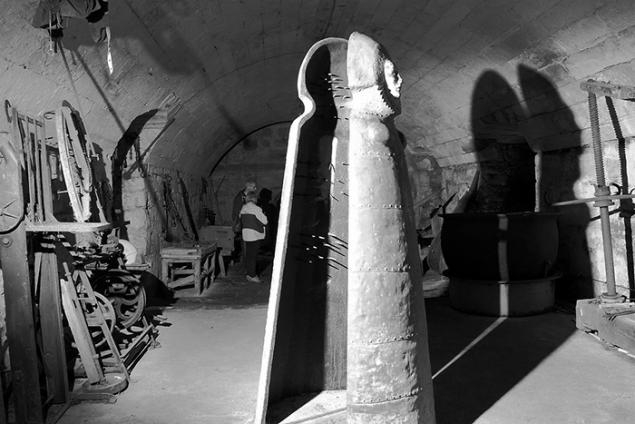
Iron maiden, Tim Jones
— And where did all these errors?
— First of all, many myths are based on old hypotheses of historians of the XVIII-XIX centuries. They initially were expressed as hypotheses, but was picked up as facts without verification. The historian may state a hypothesis suggesting a particular course of events, but this requires verification. Errors begin when a hypothesis without checking begin to consider the fact. Such things quickly become fiction because of its showiness. For example, in Wikipedia, the article devoted to scalping from the Indians, it is written that the same was practised among the ancient Germans.
This error had the following origin: in any source not mentioned, but the existing Latin source of Visigothic law Lex Visigothorum of the V century as punishment for some infraction the term "decalvatio" in the sense of cutting hair. It was a shameful punishment. However, one historian has suggested an exotic interpretation of this term as "the scalp had been removed," which was quickly picked up without checking, although the cutting of the hair is quite well-known and studied the practice of punishment among the ancient Germans.
The sagas can be understood that even dirty hair was considered shameful. For example, there is one episode in the Saga of the XIII century "In the circle of the earth" (Heimskringla), when the character before his execution via beheading is asking the executioner not to dirty his hair. But scalping is far more impressive. Exotic versions of the middle Ages are perceived in popular culture.
On the other hand, in the middle Ages, people created myths about the reality around them.— You are absolutely right. For example, the myth papesse John was launched in the middle Ages, however, late — only in the XIII century "there is evidence" that such a woman lived in the VIII or in the IX century. Another thing is that historians must distinguish the myths from the facts and the myths created in the middle Ages, from the myths created later. And largely due to the historical novels of the same Hugo or Walter Scott, to the General public — not experts — it is harder to do.
— How do historians do it? Are there any techniques? For example, in the XIX century researchers didn't have those scientific tools and ways of obtaining knowledge what are the modern. They can only build hypotheses. Now refer to the historical knowledge of previous ages, for example, if the original is lost?
— Check knowledge is always the best sources. And the most important auxiliary discipline called Philology (linguists please forgive me for this). Philology appeared long before the nineteenth century — at least in the XV century, and since then, yields very positive results. I'm talking about Lorenzo Valla (1407-1457.), which is the emblem of my project Planeta.ru and who used Philology to expose fake: to analyze the letters of the Emperor Constantine, or Konstantinov gift, the popes authority over specific areas in Italy.
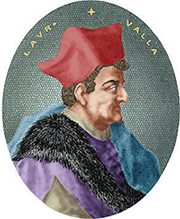
Lorenzo Valla just analyzed the language of this certificate. It turned out that this is not a classic antique Latin. Though Constantine, and lived during the period of late antiquity, but for him, Latin was the native language, and the document was written in the eighth century in some barbaric broken Latin, which, of course, differs from the language of the Roman Empire. Lorenzo himself was very much its own conclusion, but he also announced the fake of this document. Broke out a huge scandal to the whole Catholic Church, which quickly tried to cover up, but to believe in the authenticity of the gift Konstantinov was already difficult. In a hundred years this discovery was printed in Germany in large quantities, where the power gained Lutheranism, and people were interested in the struggle against the Pope.
Even before the invention of all sorts of natural-science methods of validation, such as chemical Dating of inks which were written the manuscript, there was a fairly reliable means of attribution of a text language.
The researcher from Russia just to get access to these archives? Lot of it even have anything?
— Actually left a lot of things, but the main problem is that we, as Pushkin said, lazy and incurious: for the study of the middle Ages need languages. At least, one has to know Latin, you must know old English and German, you need the skill of reading blackletter and so on. Few who are able to make such efforts, because everyone is interested in faster and easier. Hence, there is largely a myth.
Many of the medieval texts long ago published in the nineteenth century, the Germans did a remarkable publishing work, the British also pointed in this direction. As well as the copyright of the passage of time lost its force, and almost all of them are publicly available on the website Archive.org which, by the way, for some strange reason I was recently blocked by Roskomnadzor. Supposedly there was some reference to some extremist website and so all of the resource was blocked.
On the website available published in the XIX and early XX century, medieval texts, and these publications, the quality is often still unsurpassed. There are claims, of course, but better yet no one did: German publishers had already published texts on different lists, that is cited all the options of a material. There were, of course, and more popular edition in which the texts were just compiled.
And all this, what alternative is there?— With this project I propose to create a fully electronic, regularly issued publication that will focus on European history and culture. The magazine is mostly in Russian, but of course partially in English. In Russia, the lack of authors who originally write well in English.
The magazine will cover not only the middle Ages but also a New time until the XIX century. Restrictions will only enter on a geographic basis: to include Oriental would be too ambitious a task. I don't feel confident in this issue and I'm not sure one publication can successfully combine studies of the East and West.
At this stage, the materials are hand selected. I contact those authors whose research seemed interesting to me, and please send me the article or write it specifically for the magazine. Now preparing for the publication of material on the Russian historiography of the XVIII century in the English language, more precisely, the article deals with Russian historiography of the middle ages and some of the problems of Russian history, which were touched on in the XVIII century. The study is interesting from the point of view of Russian history and from the point of view of reception of Russian history in the Russian historiography. This area is little known in the West.
The journal should be open to all suggestions and responses to his work, including students, graduate students, undergraduates and even independent researchers, unaffiliated with any academic institutions, as among independent researchers come across extremely interesting work. This resource for science must not be lost.
Of course, the articles will be subject to pre-moderation. In addition, we have reviewed, excluding the publication of questionable discoveries. The reviewers review the articles only by their subjects, that is the question of quality is very important for the project and for science. I'm not enough of a specialist in the Italian Renaissance, as I have found reviewers for scandinavistica, anglistics in the French middle ages, there is hispanist and so on.
In addition, there are a number of issues that need to be addressed. The journal must register as mass media and maintain it in a certain domain. The procedure of registration requires money — and that's one of the reasons why I turned to crowdfunding. The next stage is registration of the journal in RSCI (Russian science citation index). It already requires more mental effort, because I have not yet managed to get them clear information about the procedure. It would certainly be nice to get into the international system Web of Science or Scopus, but Humanities journals virtually no chance — these systems are indexed by 3 or 4 of the Russian magazine, which, in General, is not the best. The more clearly that foreigners do not read them.
My goal is to reach out to foreign audiences, so it is assumed not only writing articles in English, but the translation of some authors who are considered to have the classics, but in the West is unknown. This educational work is needed. For example, article Alexander Nikolayevich Veselovsky (1838-1906), was the existence of an author in the West know, but his work still not translated, so many Western social anthropologists, folklorists, Medievalists mythology and reinvent the wheel, thinking that some things they discovered, although Veselovsky wrote about it in the late nineteenth century. I think his work is relevant and interesting, even by the standards of modern science — it just needs to translate.
— And how Affairs with preparation of Medievalists in Russia? Level whether they know, like, Latin?
— The fact that Latin study in all the faculties of Philology, just someone to teach better, and someone worse. With the preparation of Medievalists in Russia is still doing poorly. Virtually the only way to be a Medievalist is to become a visitor of any seminar well-known expert on the Middle ages. In this area there is still much based on the charisma of the scientist. We do not have an institutional approach to the study of the middle Ages.
Is it worth while to highlight the specialisation of historians? And at what level of education?
— About the levels of education a lot to say. Policy in respect of the preparation of curricula at the undergraduate level raises many questions. In the world practice do not share bachelors in history and in Philology — there is a so-called bachelor of Liberal arts (bachelor of arts), that is, one secondary specialty, and further specialization is already underway at the graduate level. In Russia sank the plans of the specialists according to the old nomenclature and cut them to the learning requirements bachelors. However, it turned out that the modern bachelor-historian is not a specialist, but not a graduate of a generalist. Judging by the level of modern requirements, we can say that need not only medievalism, even without history it is possible to do. Requires only basic knowledge.
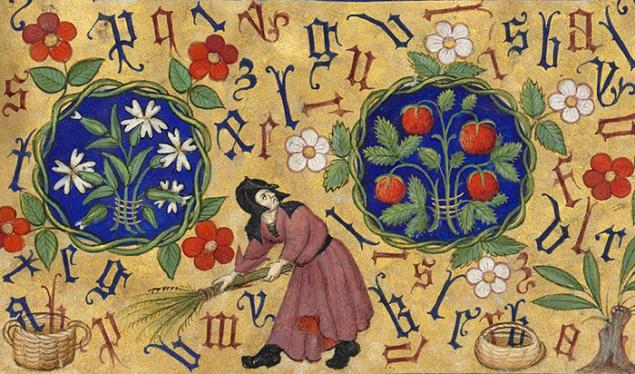
At the graduate level, of course, the situation is different. The middle ages is a fairly long period and everyone knows that the historian of antiquity does not what a specialist in modern times. The antiquity, at least, we should know the Greek language. And medieval studies, by the way, the broad principle often involves the XVI and XVII century, because a clear distinction is impractical: techniques, tested on the material of the XV century, continue to work for the next two centuries. They are even sometimes applied to the XIX century. For example, historians of the Victorian era in England used the same methods as an integrated historical-philological approach, if we take the theme associated not only with texts, but with age — for example, the poetics of the novels of Jane Austen, and education policy in England in the era of Jane Austen.
— You know all of our Medievalists abroad? How Russian researchers are included in global practice?
— There are, of course, a number of international experts: our classic of scandinavistica Elena Melnikova, more young professionals, is Fyodor B. Uspensky, with whom I have the honour to be a friend. They are quite widely published abroad in the English language. But there is, of course, not very much. Getting into foreign journals depends on many factors. First, the status of the author, and secondly, the opportunity to travel to international conferences because of travel and personal acquaintances, and we in the West — this is the easiest way to expand the circle of contacts. If someone does not have the funds to travel, the chances of international publication will be lower.
— How would you formulate the key issues or trends that are happening in the study of the middle Ages?
— In Russia, of course, more problems, as this area of research, so to speak, pushed into the shadows. She has the support of including the material, there is little scientific events, there are almost no special journals and just collections. The second problem is "tusovochka" because even these collections are published in a certain circle, which can be difficult to get.
And if we talk about global problems, I see them in the field of medieval studies not see it, I see them in the Humanities in General. This is a problem in the first place in the division of research of different fields of knowledge: very often people do not know what is being done not only in related discipline and related topics.
I just now reviewed English collection of Shakespeare, and the trend there is also noticeably affected: the author writes an article without knowing some basic things of the adjacent region, which in this case intrudes.
Publishing policy of the journals is also of concern. Because journals that offer open access content if published on sponsorship money or money from the authors. The second option, of course, a direct way to various abuses. It is difficult to refuse to publish even crazy articles if you paid for it.
In the case of closed access, with readers taken huge money for the download, as publishers are living realities of the nineteenth century. They think that if replicating paper books is expensive, and the electronic version should cost the same. But their greed brings. Of course, the reader doesn't want to pay for the content. It corrupts even the reader, since he in turn is convinced in the free of any information on the Internet. The content should not be free — it needs to be available. published
Source: theoryandpractice.ru



